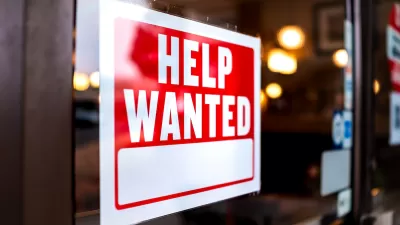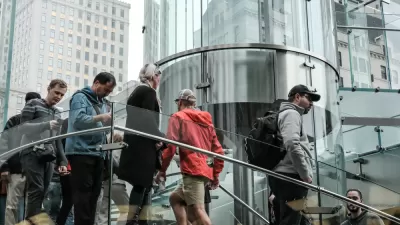Offering a list of policy innovations in several emerging mega-cities, URB.im managing editor Josephine d’Allant argues for empowerment over charity in the battle to improve conditions for the urban poor.
The most effective urban anti-poverty programs, d’Allant argues, are those that provide low-income groups with the “tools to help themselves.” For d’Allant, this means a focus on not only creating, but enabling employment.
D’Allant cites the case of Rio de Janeiro, where the government is expanding access to childcare services in an effort to enable the growth of two-income households. Alongside this, the government is partnering with NGOs to improve job skills and offer training courses to improve employability.
In addition to providing childcare services and training courses, d’Allant argues that increasing access to technology is another effective way to reduce urban poverty. In Jakarta, d’Allant finds pioneering work by IT activist Onno W. Purbo, who is seeking to expand affordable internet access among the urban poor. This, d’Allant argues, is a major step towards closing the “digital divide,” which is a major barrier to not only employment, but technical skills and employability.
Next, d’Allant offers examples where new government programs are striving to improve opportunities for those facing multiple barriers to employment. In Mumbai, a program called Mettaa employs blind individuals to give reflexology massages and, in so doing, increases both their self-sufficiency and combats the exclusionary stigmas often faced by India’s disabled.
D’Allant explores these examples further and invites others to contribute on the urb.im blog. In the quest for “just and inclusive cities,” d’Allant writes, programs that enable the urban poor to improve their own welfare are “in many ways more compassionate, and certainly more empowering, than any charity program.”
FULL STORY: Give the Urban Poor Opportunity, Not Just Charity

Maui's Vacation Rental Debate Turns Ugly
Verbal attacks, misinformation campaigns and fistfights plague a high-stakes debate to convert thousands of vacation rentals into long-term housing.

Planetizen Federal Action Tracker
A weekly monitor of how Trump’s orders and actions are impacting planners and planning in America.

Chicago’s Ghost Rails
Just beneath the surface of the modern city lie the remnants of its expansive early 20th-century streetcar system.

Bend, Oregon Zoning Reforms Prioritize Small-Scale Housing
The city altered its zoning code to allow multi-family housing and eliminated parking mandates citywide.

Amtrak Cutting Jobs, Funding to High-Speed Rail
The agency plans to cut 10 percent of its workforce and has confirmed it will not fund new high-speed rail projects.

LA Denies Basic Services to Unhoused Residents
The city has repeatedly failed to respond to requests for trash pickup at encampment sites, and eliminated a program that provided mobile showers and toilets.
Urban Design for Planners 1: Software Tools
This six-course series explores essential urban design concepts using open source software and equips planners with the tools they need to participate fully in the urban design process.
Planning for Universal Design
Learn the tools for implementing Universal Design in planning regulations.
planning NEXT
Appalachian Highlands Housing Partners
Mpact (founded as Rail~Volution)
City of Camden Redevelopment Agency
City of Astoria
City of Portland
City of Laramie





























